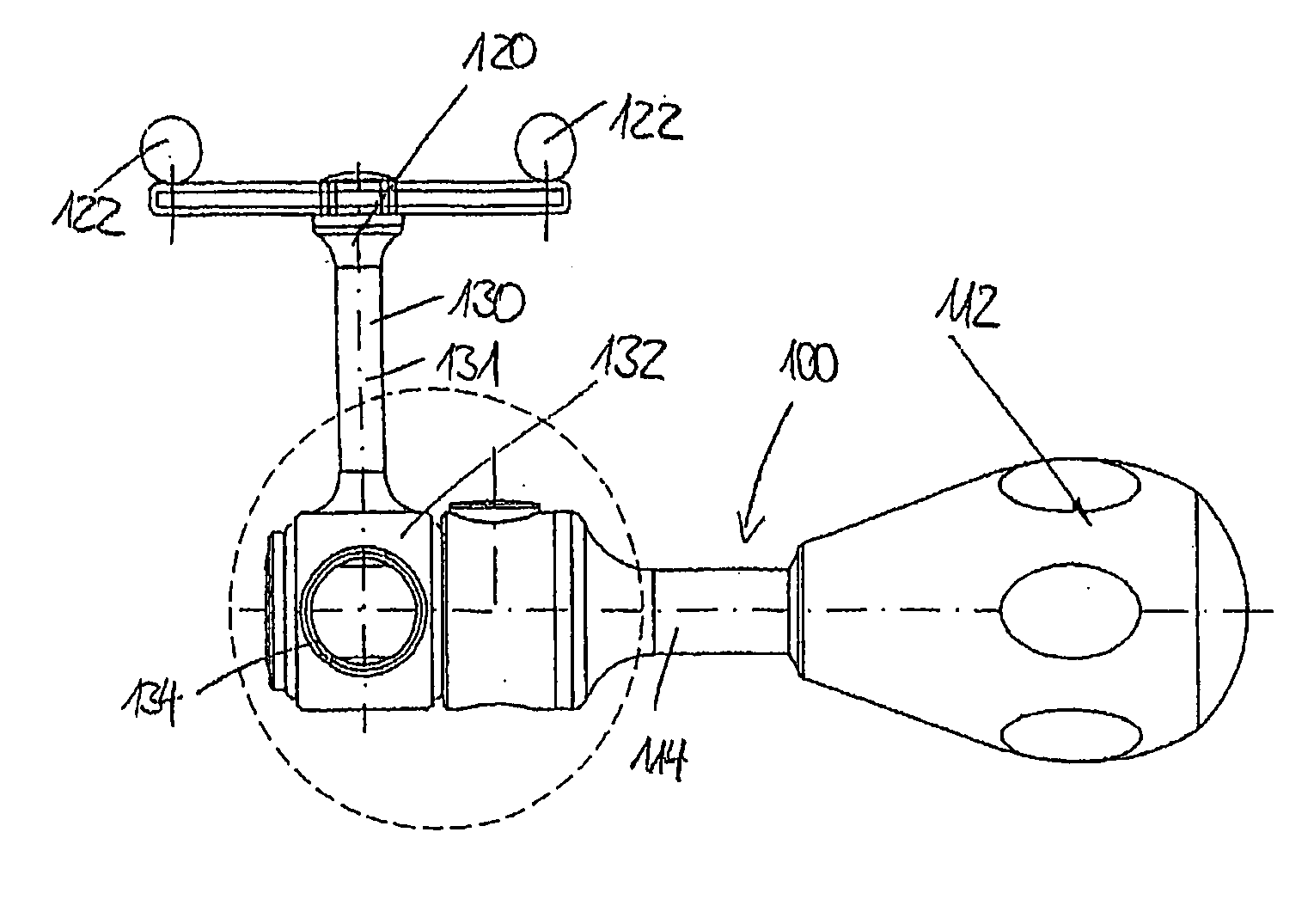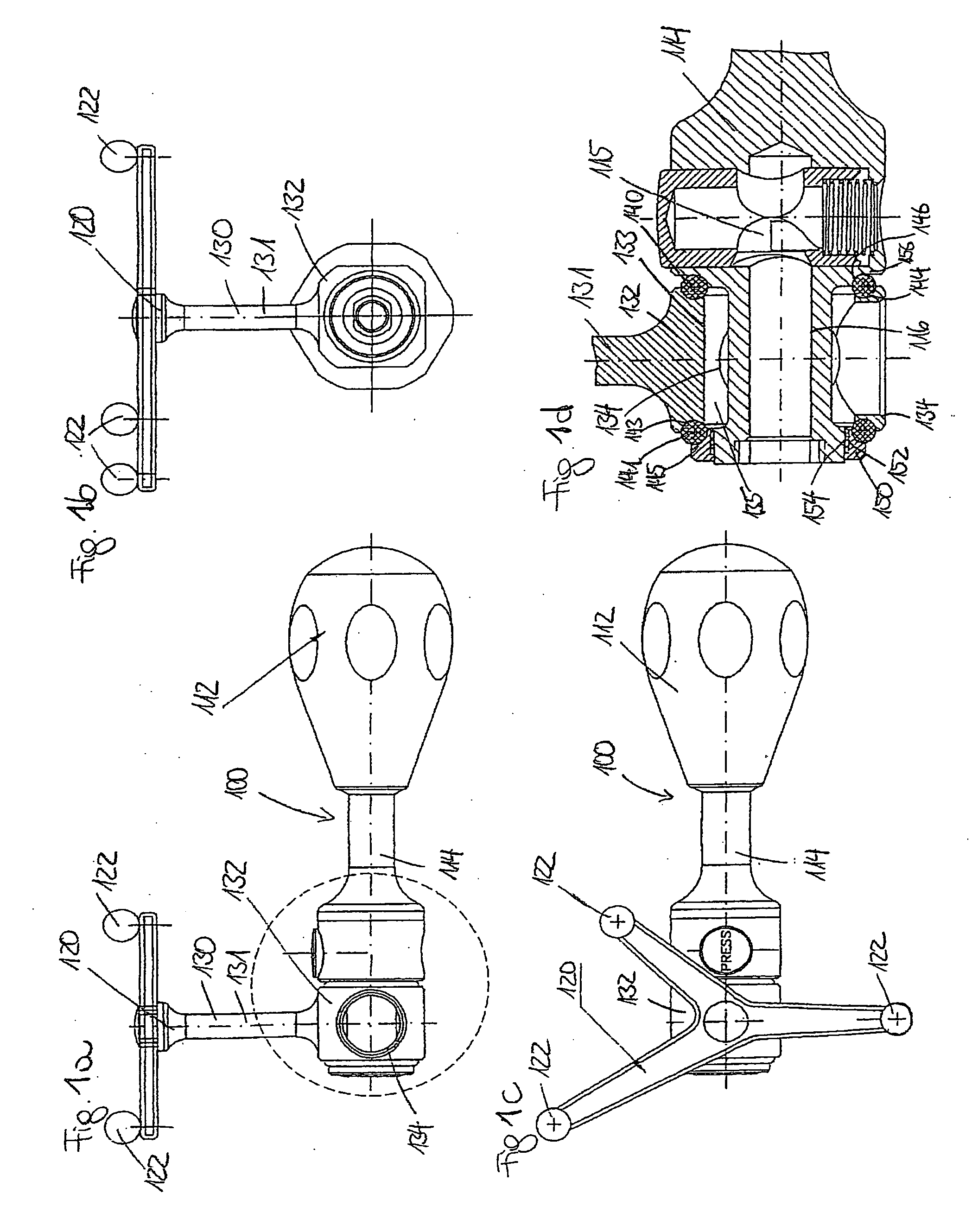Device for detecting spatial position
a technology for detecting devices and positions, applied in the field of detecting devices for spatial positions, can solve problems such as life-threatening injuries and patient injury risks, and achieve the effects of convenient manipulation during operation, reliable immobilization of mounting devices, and simple manner
- Summary
- Abstract
- Description
- Claims
- Application Information
AI Technical Summary
Benefits of technology
Problems solved by technology
Method used
Image
Examples
Embodiment Construction
[0030]Reference will now be made in detail to several embodiments of the invention that are illustrated in the accompanying drawings. Wherever possible, same or similar reference numerals are used in the drawings and the description to refer to the same or like parts or steps. The drawings are in simplified form and are not to precise scale. For purposes of convenience and clarity only, directional terms, such as top, bottom, up, down, over, above, and below may be used with respect to the drawings. These and similar directional terms should not be construed to limit the scope of the invention in any manner.
[0031]FIGS. 1a through 1d show a surgical instrument 100 with a handle 112, on which a shaft 114 is disposed. The longitudinal axis of the shaft 114 defines a longitudinal axis l100 of the surgical instrument.
[0032]The distal end of the shaft 114 is configured as a coupling 115, via which a working end can be placed on the shaft 114. To this end, a longitudinal bore hole 116 is l...
PUM
 Login to View More
Login to View More Abstract
Description
Claims
Application Information
 Login to View More
Login to View More - R&D
- Intellectual Property
- Life Sciences
- Materials
- Tech Scout
- Unparalleled Data Quality
- Higher Quality Content
- 60% Fewer Hallucinations
Browse by: Latest US Patents, China's latest patents, Technical Efficacy Thesaurus, Application Domain, Technology Topic, Popular Technical Reports.
© 2025 PatSnap. All rights reserved.Legal|Privacy policy|Modern Slavery Act Transparency Statement|Sitemap|About US| Contact US: help@patsnap.com


